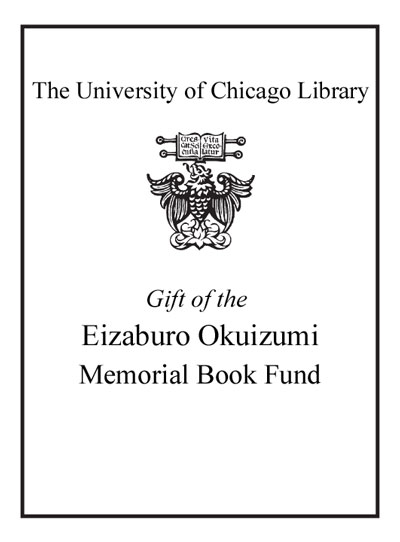|
|
|
|
| LEADER |
00000cam a2200000Ia 4500 |
| 001 |
12355895 |
| 005 |
20200204123103.5 |
| 006 |
m o d |
| 007 |
cr cn||||||||| |
| 008 |
960920s1997 enk ob 001 0 eng d |
| 003 |
ICU |
| 040 |
|
|
|a E7B
|b eng
|e pn
|c E7B
|d OCLCQ
|d OCLCF
|d OCLCO
|d YDXCP
|d OCLCQ
|d OCL
|d OCLCQ
|d WAU
|d EBLCP
|d UAB
|d OCLCQ
|
| 019 |
|
|
|a 776957833
|a 958553347
|
| 020 |
|
|
|a 9780511665318
|q (e-book)
|
| 020 |
|
|
|a 0511665318
|q (e-book)
|
| 020 |
|
|
|z 0521582407
|q (hardbound)
|
| 020 |
|
|
|z 9780521582407
|q (hardbound)
|
| 020 |
|
|
|z 0521894506
|q (paperback)
|
| 035 |
|
|
|a (OCoLC)726827025
|z (OCoLC)776957833
|z (OCoLC)958553347
|
| 043 |
|
|
|a a-ja---
|
| 050 |
|
4 |
|a HC462.9
|b .G34 1997eb
|
| 082 |
0 |
4 |
|a 338.951/09045
|2 20
|
| 049 |
|
|
|a CGUA
|
| 100 |
1 |
|
|a Gao, Bai,
|d 1955-
|0 http://id.loc.gov/authorities/names/nr93047852
|1 http://viaf.org/viaf/47671399
|
| 245 |
1 |
0 |
|a Economic ideology and Japanese industrial policy :
|b developmentalism from 1931 to 1965 /
|c Bai Gao.
|
| 260 |
|
|
|a Cambridge ;
|a New York :
|b Cambridge University Press,
|c 1997.
|
| 300 |
|
|
|a 1 online resource (xiv, 364 pages)
|
| 336 |
|
|
|a text
|b txt
|2 rdacontent
|0 http://id.loc.gov/vocabulary/contentTypes/txt
|
| 337 |
|
|
|a computer
|b c
|2 rdamedia
|0 http://id.loc.gov/vocabulary/mediaTypes/c
|
| 338 |
|
|
|a online resource
|b cr
|2 rdacarrier
|0 http://id.loc.gov/vocabulary/carriers/cr
|
| 504 |
|
|
|a Includes bibliographical references and index.
|
| 505 |
0 |
|
|a Introduction -- The Ideology of Japanese developmentalism -- The managed economy -- Priority production -- Promoting exports -- High growth and liberalization -- The institutional environment of economic reasoning -- Epilogue: Japanese developmentalism in historical perspective.
|
| 520 |
|
|
|a During the Great Depression and World War II, the ideology of developmentalism - characterized by a nationalistic perspective, a production orientation, a strategic view of the economy, constraints on market competition, and rejection of the profit principle - emerged and strongly influenced policy innovation in Japan and institutional reforms in its economy. As a result, the Japanese experience of the great transformation of modern capitalism resembled that of Germany and Italy but differed significantly from the liberal capitalism represented by the New Deal in the United States. Liberal capitalism in the postwar era eliminated the military nature of the Japanese economy, and forced developmentalism to adapt to democratic political institutions and the free trade regime. Nevertheless, the economic principles that served to combat the Great Depression and sustain the total war from 1931 to 1945 survived.
|
| 588 |
0 |
|
|a Print version record.
|
| 650 |
|
0 |
|a Industrial policy
|z Japan.
|0 http://id.loc.gov/authorities/subjects/sh2008104466
|
| 651 |
|
0 |
|a Japan
|x Economic conditions
|y 1918-1945.
|0 http://id.loc.gov/authorities/subjects/sh85069407
|
| 651 |
|
0 |
|a Japan
|x Economic conditions
|y 1945-1989.
|0 http://id.loc.gov/authorities/subjects/sh90003615
|
| 651 |
|
0 |
|a Japan
|x Economic policy
|y 1945-1989.
|0 http://id.loc.gov/authorities/subjects/sh90003625
|
| 650 |
|
7 |
|a Economic history.
|2 fast
|0 (OCoLC)fst00901974
|
| 650 |
|
7 |
|a Economic policy.
|2 fast
|0 (OCoLC)fst00902025
|
| 650 |
|
7 |
|a Industrial policy.
|2 fast
|0 (OCoLC)fst00971433
|
| 651 |
|
7 |
|a Japan.
|2 fast
|0 (OCoLC)fst01204082
|
| 648 |
|
7 |
|a 1918-1989
|2 fast
|
| 655 |
|
4 |
|a Electronic books.
|
| 776 |
0 |
8 |
|i Print version:
|a Gao, Bai, 1955-
|t Economic ideology and Japanese industrial policy.
|d Cambridge ; New York : Cambridge University Press, 1997
|z 0521582407
|w (DLC) 96036770
|w (OCoLC)35657832
|
| 856 |
4 |
0 |
|u https://doi.org/10.1017/CBO9780511665318
|y Cambridge Core
|
| 903 |
|
|
|a HeVa
|
| 929 |
|
|
|a eresource
|
| 999 |
f |
f |
|i cb2637a9-dc3c-5b56-9f95-fca29a12b5ca
|s c97a015f-47cc-5d48-a436-c46890997bdd
|
| 928 |
|
|
|t Library of Congress classification
|a HC462.9 .G34 1997eb
|l Online
|c UC-FullText
|u https://doi.org/10.1017/CBO9780511665318
|z Cambridge Core
|g ebooks
|e OKUI
|i 11942741
|

